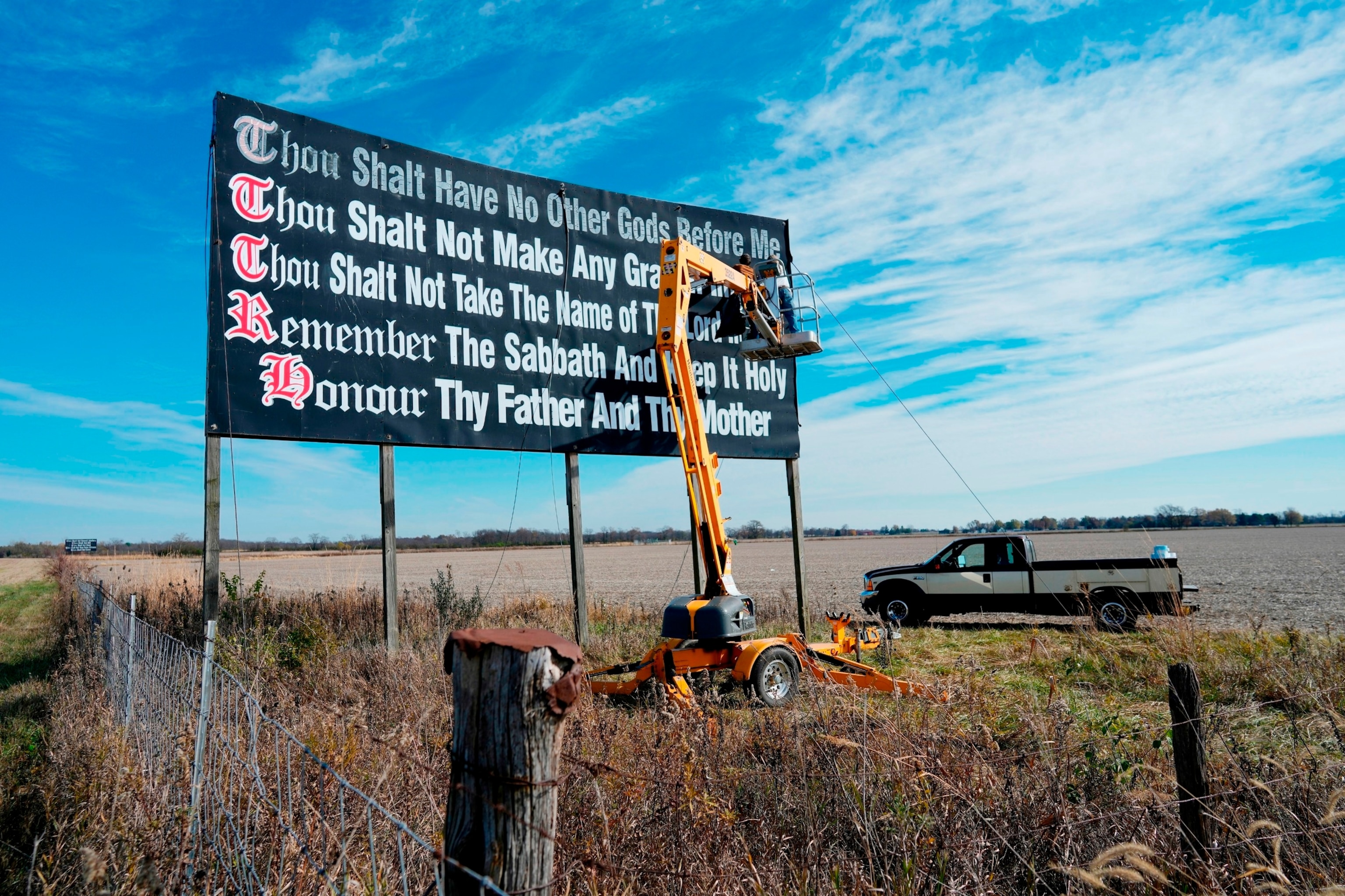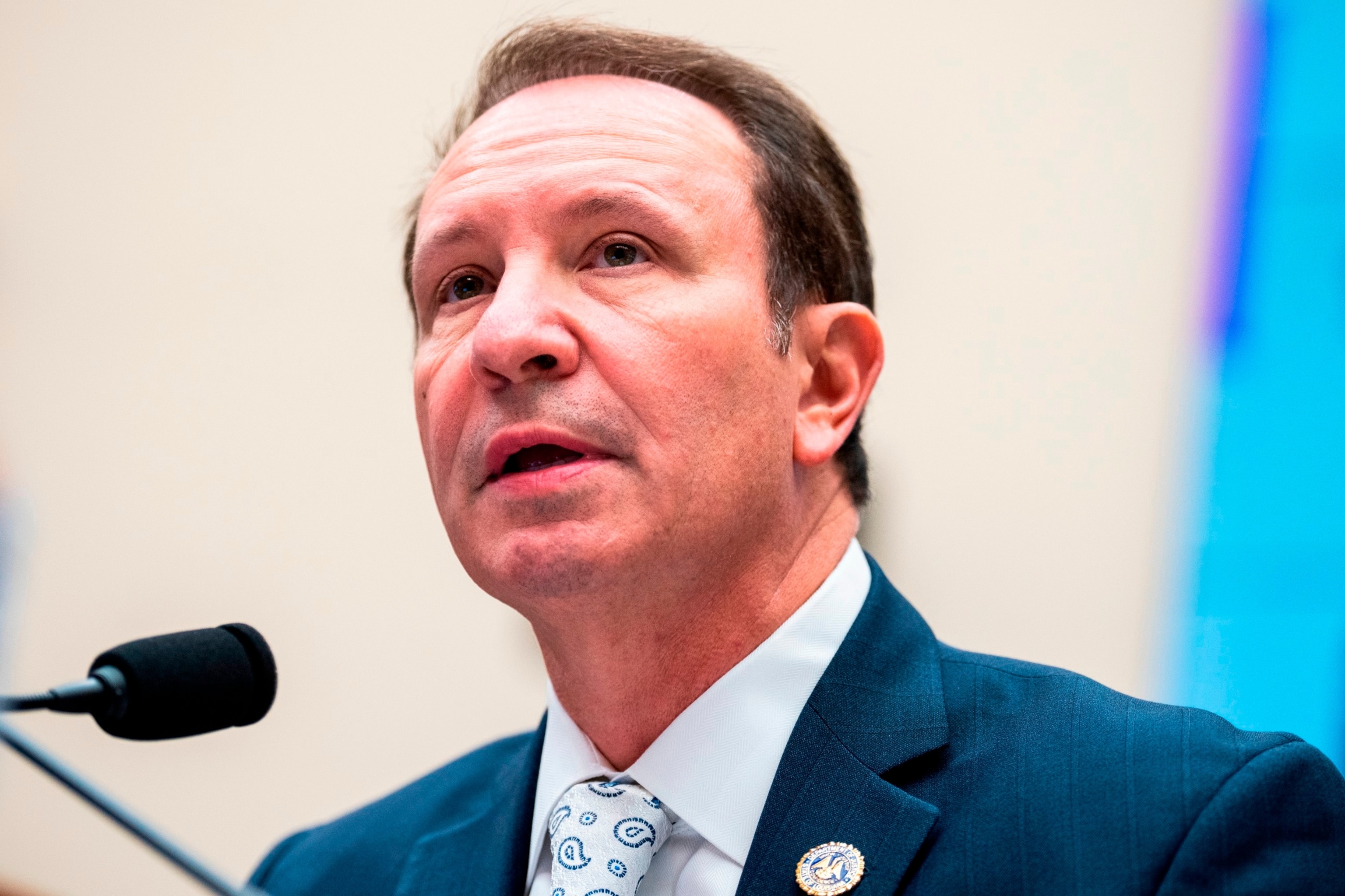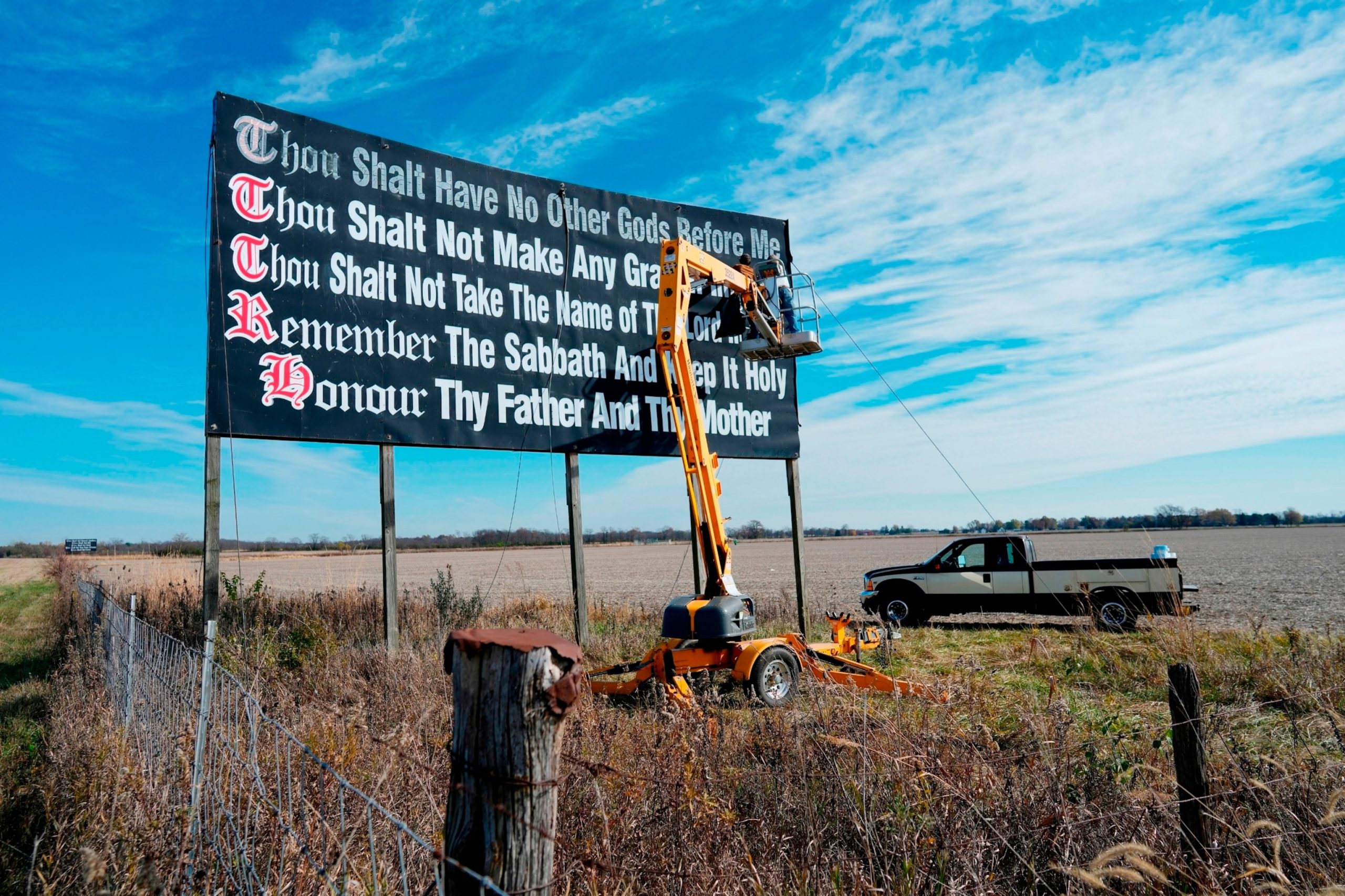A multifaith group of Louisiana families with children in public schools is suing to challenge Louisiana’s new law requiring all public school classrooms to display the Ten Commandments.
HB 71 mandates public schools — from kindergarten to the collegiate level — to display the Ten Commandments, a religious set of rules from the Old Testament, in every classroom on “a poster or framed document that is at least 11 inches by 14 inches.”
The suit, filed in federal court Monday, argues that the law violates U.S. Supreme Court precedent, pointing to the Stone v. Graham case in which the court overturned a similar state law, holding that the separation of church and state bars public schools from posting the Ten Commandments in classrooms.
The nine families — who are Jewish, Christian, Unitarian Universalist and nonreligious — also argue the law is religious coercion and violates their First Amendment rights. The parents represented include rabbis, pastors, and reverends.
“Permanently posting the Ten Commandments in every Louisiana public school classroom – rendering them unavoidable – unconstitutionally pressures students into religious observance, veneration and adoption of the state’s favored religious scripture,” the complaint reads.
It continues, “It also sends the harmful and religiously divisive message that students who do not subscribe to the Ten Commandments — or, more precisely, to the specific version of the Ten Commandments that H.B. 71 requires schools to display — do not belong in their own school community and should refrain from expressing any faith practices or beliefs that are not aligned with the state’s religious preferences.”

Workers repaint a Ten Commandments billboard off of Interstate 71 on Election Day near Chenoweth, Ohio, Nov. 7, 2023. Louisiana has become the first state to require that the Ten Commandments be displayed in every public-school classroom under a bill signed into law by Republican Gov. Jeff Landry, June 19, 2024.
Carolyn Kaster/AP, FILES
Supporters of HB 71 argue that the law isn’t about religion: “This is not preaching a Christian religion. It’s not preaching any religion. It’s teaching a moral code,” the bill’s primary sponsor and Republican state Rep. Dodie Horton said during an April hearing, according to local news outlet WWL-TV.

Louisiana has become the first state to require that the Ten Commandments be displayed in every public-school classroom under a bill signed into law by Republican Gov. Jeff Landry, June 19, 2024.
Tom Williams/CQ-Roll Call via Getty Images
The law argues that the Ten Commandments are also historically significant, reflecting “the understanding of the founders of our nation with respect to the necessity of civic morality to a functional self-government,” the text reads.
“If you want to respect the rule of law, you gotta start from the original lawgiver, which was Moses,” Louisiana Gov. Jeff Landry said last week during the press conference where he signed the bills.
The bill is one of 18 signed by Landry as part of his “Dream Big” education plan that aims to “bring back common sense in our classrooms,” he said in a recent statement.
Horton declined to comment. Landry and Attorney General Liz Murrill have not yet returned ABC News’ requests for comment.
Public schools have until January 2025 to display the poster, which will be paid for by private donations and not state dollars, according to the law. The law does not state what would happen if a school does not comply with the order.
In recent years, a controversial issue has arisen in Louisiana regarding the display of the Ten Commandments in public school classrooms. Several families have filed lawsuits challenging the state’s requirement for the religious text to be prominently featured in educational settings, citing concerns about the separation of church and state.
The Ten Commandments, a set of biblical principles outlining moral and ethical guidelines, have long been a source of debate in the United States. While some argue that the commandments hold historical and cultural significance, others believe that their presence in public institutions violates the First Amendment’s establishment clause, which prohibits the government from endorsing or promoting a specific religion.
In Louisiana, state law mandates that the Ten Commandments be displayed in every public school classroom. This requirement has sparked outrage among some parents and students who feel that it infringes upon their right to religious freedom. In response, several families have taken legal action to challenge the law and have the commandments removed from their children’s classrooms.
One such lawsuit was filed by the American Civil Liberties Union (ACLU) on behalf of a group of families in Louisiana. The lawsuit argues that the state’s mandate for displaying the Ten Commandments in schools is unconstitutional and violates the rights of non-Christian students and families. The ACLU contends that the law promotes a specific religious viewpoint and creates a hostile environment for those who do not adhere to that faith.
Supporters of the law argue that the display of the Ten Commandments is a valuable educational tool that promotes moral values and ethics. They believe that removing the commandments from classrooms would be a disservice to students and undermine the country’s Judeo-Christian heritage.
The outcome of these lawsuits remains uncertain, as courts grapple with balancing the rights of religious expression with the principles of separation of church and state. As the legal battle continues, it raises important questions about the role of religion in public education and the boundaries between personal belief and government endorsement.
In conclusion, the lawsuits filed by families challenging Louisiana’s requirement for the display of the Ten Commandments in classrooms highlight the ongoing debate over religion in public institutions. As the legal system grapples with these complex issues, it is essential to consider the rights and beliefs of all individuals involved and strive to create inclusive and respectful educational environments for all students.



